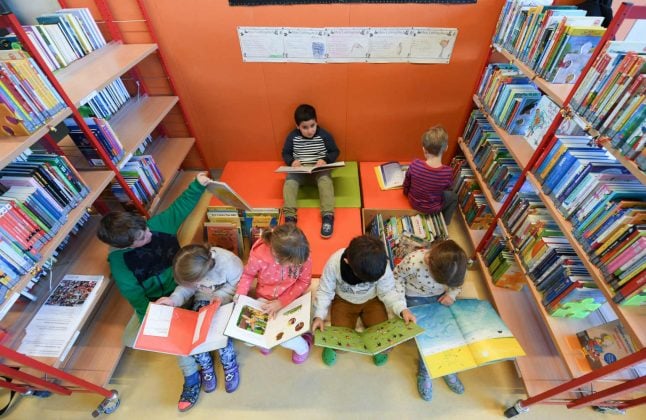EDUCATION
One in five German kids can’t read properly when they leave primary school: report
German states have been told to up their game on education after a study showed that ever more kids can't read properly and fewer enjoy picking up a book.
Published: 5 December 2017 15:51 CET

Photo: DPA
Ever more children in Germany cannot read correctly when they leave primary school. In an international comparison, Germany has fallen in reading performance of primary school pupils. Meanwhile fewer children are enjoying reading. These are the conclusions of the International Primary School Reading Survey (IGLU) presented in Berlin on Tuesday.
Since 2001, the proportion of fourth graders with only rudimentary reading ability has risen from 16.9 percent to 18.9 percent, the study found. Those who fell into this category were hardly in a position to answer comprehension questions on simple texts.
At the same time, the proportion of children who like to read has fallen by five percentage points to around 70 percent since 2001. “That is in itself a sad finding,” said the author of the study, Wilfried Bos.
According to IGLU, the social divide in educational opportunities has also increased. In 2001, the chances of getting into a Gymnasium for children from wealthier backgrounds were 2.6 times higher than for socially disadvantaged children. In 2016, the odds were 3.4 times as high.
However, since the first survey in 2001, the proportion of students with particularly high performance in reading has also risen – from 8.6 to 11.1 percent last year.
Overall though Bos is disillusioned with the efforts made by the federal states to improve the situation since their predecessor studies.
“Not enough has happened,” he argues.
In response to the study the Union for Education and Science (GEW) demanded significantly more money for primary schools, targeted reading promotion and more full-day activities. The Association for Education and Training (VBE) also demanded more resources, especially for the individual promotion of pupils.
North Rhine-Westphalia's minister of education Yvonne Gebauer (FDP) told the Funke Mediengruppe that “Germany is still on the hard shoulder, and we still have to step up a gear to get into the fast lane.”
“Instead of supporting all children as much as they need it, the education system continues to exacerbate social selection,” said Die Linke leader Katja Kipping on Tuesday.
Url copied to clipboard!


 Please whitelist us to continue reading.
Please whitelist us to continue reading.